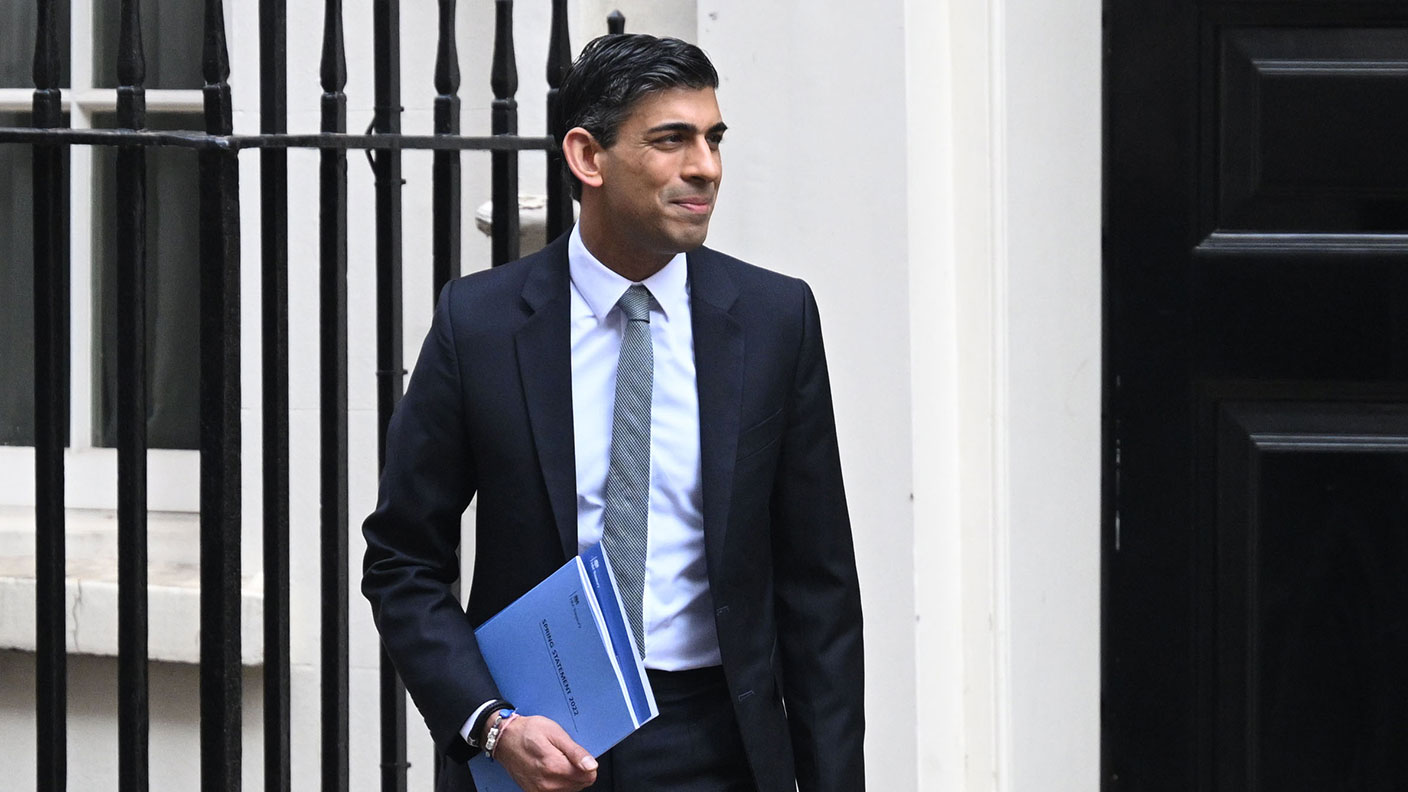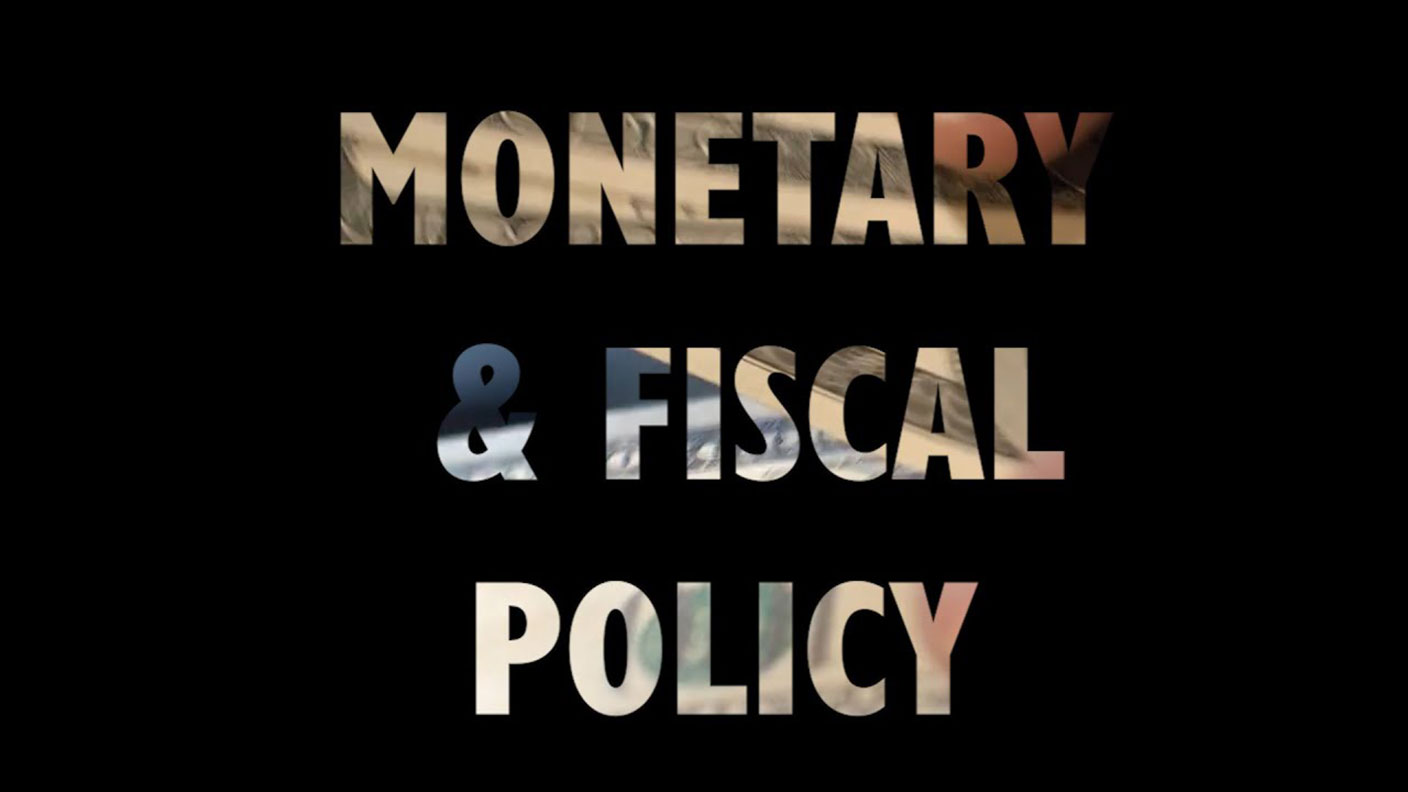How to build your own bond portfolio
Investing in bonds usually means piling into a managed bond fund. But as Bengt Saelensminde explains, that makes little sense in today's markets.
Get the latest financial news, insights and expert analysis from our award-winning MoneyWeek team, to help you understand what really matters when it comes to your finances.
You are now subscribed
Your newsletter sign-up was successful
Want to add more newsletters?

Twice daily
MoneyWeek
Get the latest financial news, insights and expert analysis from our award-winning MoneyWeek team, to help you understand what really matters when it comes to your finances.

Four times a week
Look After My Bills
Sign up to our free money-saving newsletter, filled with the latest news and expert advice to help you find the best tips and deals for managing your bills. Start saving today!
Private investors have always been in thrall to equities. Bonds, on the other hand, seem a more esoteric affair. So for most people, dabbling in bonds has almost always involved piling into some kind of managed bond fund. But in today's markets, this makes little sense. Yields on most corporate bonds are now less than 5%. In this environment, who can afford to hand over some 1.5% or 2% in management fees? That's between a third and half of your income, straight into the fund manager's pocket.
And this is at a time when many portfolios could do with a corporate bond boost. Mark Carney, the governor of the Bank of England, has made it pretty clear that interest rates won't see any meaningful uptick anytime soon. We are today seeing a dangerous deflationary wave coming out of China. Weakening commodity prices and an oversupply of industrial capacity is putting downward pressure on prices. Coupled with a generally weak economic outlook, this means little upward pressure on interest rates.
Since bond prices move inversely to interest rates (lower rates mean higher bond prices and vice versa), this should all be good news for bonds. Yet jitters in the credit markets centred on bonds issued by energy companies, as a result of falling oil prices have seen bond prices fall across the board.
MoneyWeek
Subscribe to MoneyWeek today and get your first six magazine issues absolutely FREE

Sign up to Money Morning
Don't miss the latest investment and personal finances news, market analysis, plus money-saving tips with our free twice-daily newsletter
Don't miss the latest investment and personal finances news, market analysis, plus money-saving tips with our free twice-daily newsletter
So this could be a good time for private investors to up the ante in this hitherto ignored asset class, since corporate bonds offer better value than they did a few months ago. And there's no need to hand over a chunk of your income to a fund manager to build a bond portfolio.
Tuck your income away tax-free
The great thing about a bond is that you know exactly when interest coupons are due and when the redemption will be paid. As such, bonds can be used to save for anything from school fees, to holidays, or even the purchase of a new car, ten years down the line.
Building a bond ladder
Interest-rate risk refers to the risk that rates may rise or fall, affecting the value of your bonds. The date at which a bond matures affects the extent to which it will be affected by changes in short-term and long-term interest rates. Since nobody can be sure what the long-term outlook for interest rates is, we need to invest in bonds of different maturities.
The general idea is to continue adding rungs to our bond ladder. As each bond is redeemed, we reinvest the proceeds in a new bond with a longer maturity than anything else currently in the portfolio.
A model portfolio
As it is, the maturities vary from four years to 20 years, with an average of around ten. I've included some reasonable diversification, from rugby club Wasps through to Tesco. This portfolio offers a running yield (the income you get relative to the price you pay) of 5.7%. However, the yield to maturity (your overall return on a bond if it's held to maturity) would be a bit lower at 5.2%. That's because these bonds mostly trade at a premium to their face value (the price at which they will be redeemed).
| Helical Bar | Property | Jun-20 | 104.9 | 5.7% | 4.8% |
| Ladbrokes | Gaming | Sep-22 | 100.7 | 5.1% | 5.0% |
| Wasps | Sport | May-22 | 100.4 | 6.5% | 6.4% |
| Paragon | Finance | Aug-24 | 99.7 | 6.0% | 6.0% |
| Hammerson | Property | Feb-26 | 122.8 | 4.9% | 3.3% |
| Tesco | Retail | Dec-29 | 98.4 | 6.1% | 6.2% |
| Aviva | Insurance | Nov-36 | 103.8 | 5.9% | 5.0% |
| Average | Row 7 - Cell 1 | Jun-25 | 104.4 | 5.7% | 5.2% |
Get the latest financial news, insights and expert analysis from our award-winning MoneyWeek team, to help you understand what really matters when it comes to your finances.
Bengt graduated from Reading University in 1994 and followed up with a master's degree in business economics.
He started stock market investing at the age of 13, and this eventually led to a job in the City of London in 1995. He started on a bond desk at Cantor Fitzgerald and ended up running a desk at stockbroker's Cazenove.
Bengt left the City in 2000 to start up his own import and beauty products business which he still runs today.
-
 Can mining stocks deliver golden gains?
Can mining stocks deliver golden gains?With gold and silver prices having outperformed the stock markets last year, mining stocks can be an effective, if volatile, means of gaining exposure
-
 8 ways the ‘sandwich generation’ can protect wealth
8 ways the ‘sandwich generation’ can protect wealthPeople squeezed between caring for ageing parents and adult children or younger grandchildren – known as the ‘sandwich generation’ – are at risk of neglecting their own financial planning. Here’s how to protect yourself and your loved ones’ wealth.
-
 Which is best – buy-to-let or shares?
Which is best – buy-to-let or shares?Buy-to-let property used to be a great investment, but it’s no longer a sure-fire way to make money.
-
 How to protect your wealth as inflation hits new record highs
How to protect your wealth as inflation hits new record highsOpinion UK inflation has hit a new record high of 10.1%. It's going to hurt, says Dominic Frisby. Here's how you can protect your wealth.
-
 Investors beware – the 1970s nightmare is back
Investors beware – the 1970s nightmare is backCover Story It’s too late to worry about a return to the 1970s, writes Barry Norris, founder of Argonaut Capital – we’re already there. The more important question for investors now is: what can you do about it?
-
 Which mistake will central bankers choose to make next?
Which mistake will central bankers choose to make next?Editor's letter The heads of the Bank of England and the US Federal Reserve have choices – but none of them are good choices, says Merryn Somerset Webb.
-
 How to position your portfolio for higher inflation
How to position your portfolio for higher inflationEditor's letter UK inflation hit 6.2% this week, Merryn Somerset-Webb explains what is behind it and how investors can position themselves to combat it.
-
 Inflation is still one of the biggest threats to your personal finances
Inflation is still one of the biggest threats to your personal financesEditor's letter Central bankers and economists insist inflation will be gone by next year. We're not so sure, says Merryn Somerset Webb. So if you haven’t started to inflation-proof your portfolio, you might want to do so.
-
 Too embarrassed to ask: what is the difference between monetary policy and fiscal policy?
Too embarrassed to ask: what is the difference between monetary policy and fiscal policy?Videos Governments and central banks have two main tools for influencing a country's economic growth: monetary policy and fiscal policy. But what are they, what is the difference, and how do they work?
-
 Which assets would do best from the return of inflation?
Which assets would do best from the return of inflation?Analysis If inflation becomes a genuine concern for investors, it would transform today's markets. John Stepek looks at which assets might prosper amid the turmoil.